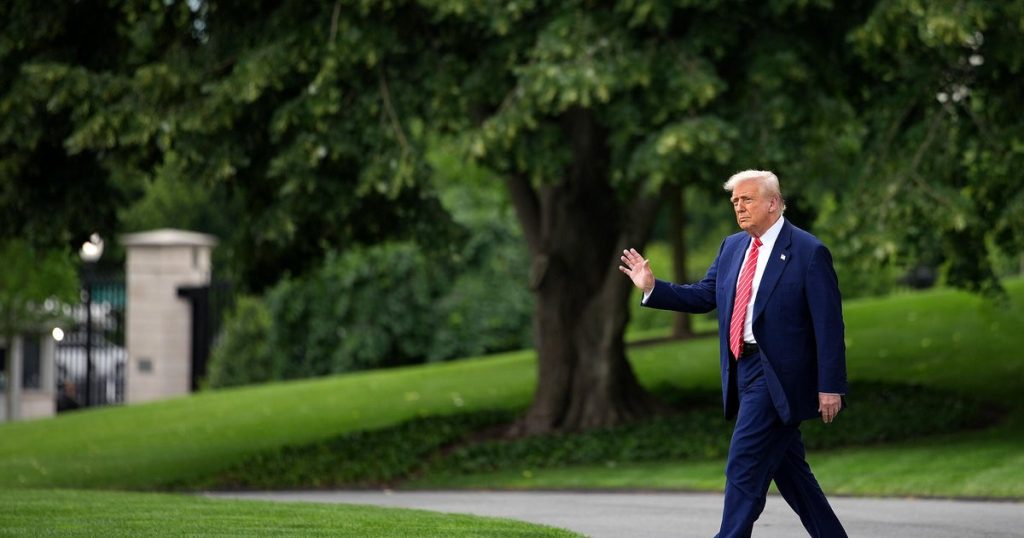| Article Subheadings |
|---|
| 1) Overview of the Travel Ban |
| 2) Countries Facing Complete Restrictions |
| 3) Countries with Partial Restrictions |
| 4) Exemptions to the Proclamation |
| 5) Implications and Response |
In a significant policy move, President Trump recently enacted a travel ban affecting nationals from 12 specific countries, alongside partial restrictions for travelers from seven additional nations. This proclamation, citing U.S. national security interests, will officially come into effect on June 9. The decree does allow for certain exemptions, targeting permanent and temporary visa holders aiming to enter the U.S.
Overview of the Travel Ban
The announcement of this new travel ban comes amid ongoing concerns regarding national security and immigration control. In a formal proclamation, President Trump emphasized the urgent need to restrict entry for citizens originating from countries identified as posing a threat to U.S. interests. The intention behind the travel ban is to mitigate the risks associated with terrorism and other security challenges posed by these nations.
Specifically, the ban targets nationals from a total of 12 nations completely and imposes varying degrees of restrictions on an additional seven countries. This represents a continuation of efforts initiated under previous presidential administrations to strategically manage immigration and reinforce U.S. borders. The details of these restrictions reveal a careful selection process intended to balance national security with humanitarian considerations.
Countries Facing Complete Restrictions
Under the newly signed proclamation, citizens from the following 12 countries are now barred from entering the United States:
- Afghanistan
- Myanmar
- Chad
- The Republic of the Congo
- Equatorial Guinea
- Eritrea
- Haiti
- Iran
- Libya
- Somalia
- Sudan
- Yemen
These nations were selected based on wide-ranging assessments of their governments’ capabilities in effectively managing their own borders and gauging the potential threats posed to the United States. The repercussions of this decision may be far-reaching, impacting families, international relations, and humanitarian aid efforts.
Countries with Partial Restrictions
In addition to the countries facing complete travel bans, the proclamation also identifies seven nations subject to partial restrictions. Nationals from the following countries will still be able to enter the U.S., but with specific limitations placed on their entry:
- Burundi
- Cuba
- Laos
- Sierra Leone
- Togo
- Turkmenistan
- Venezuela
Individuals from these nations seeking to immigrate or acquire temporary visas may face additional scrutiny during the application process. The criteria governing this partial restriction reflects an effort to categorize nations based on current geopolitical realities and potential risks.
Exemptions to the Proclamation
While the ban marks a strict regulatory shift, there are notable exemptions that aim to mitigate the impact on families and certain individuals. Notably, the decree permits entry for:
- U.S. permanent residents and the immediate family members (spouses and children) of U.S. citizens who can provide credible evidence of their identities and relationships.
- Afghans who assisted U.S. forces during conflicts and have been granted special visas due to their service.
- Diplomats and their immediate families.
- Athletes coming to participate in international sporting events such as the World Cup or the Olympics.
- Individuals with dual nationality where one passport does not originate from a banned country.
- Adoption cases.
- Individuals from persecuted ethnic and religious minorities in Iran holding immigrant visas.
- Cases where the Attorney General or Secretary of State grants exceptions deemed in line with U.S. national interests.
These exemptions demonstrate a level of discretion built into the policy to ensure humanitarian concerns and family unity are preserved despite the overarching restrictions placed on other nationals.
Implications and Response
The enactment of such restrictive measures is bound to elicit mixed reactions both domestically and internationally. Critics of the travel ban claim it unfairly discriminates against individuals based solely on their nationality and does not effectively target the genuine threats to American security. Advocacy groups fear the consequences on families and individual lives due to tightened immigration controls.
Supporters, however, argue that the travel ban is a necessary step in safeguarding national security and ensuring that thorough vetting processes are in place for foreign nationals coming to the U.S. The broader implications of this move raise questions about America’s approach toward immigration and human rights, particularly in light of global humanitarian crises.
This policy highlights a continued focus on national security that may ultimately redefine the fabric of U.S. immigration. As more stakeholders voice their opinions, the true impact of this travel ban may become clearer over time.
| No. | Key Points |
|---|---|
| 1 | President Trump has signed a proclamation specifying travel bans for 12 countries. |
| 2 | Seven additional countries face partial travel restrictions. |
| 3 | Exemptions include U.S. permanent residents and certain visa holders. |
| 4 | The travel ban aims to enhance national security amidst ongoing concerns. |
| 5 | Mixed responses are expected from various stakeholders regarding the implications of the ban. |
Summary
The recent travel ban instituted by President Trump represents a critical shift in U.S. immigration policy, with far-reaching consequences both for international relations and humanitarian efforts. By identifying specific nations and establishing exemptions, the administration aims to balance security concerns with the need for compassion. The response from various factions emphasizes the ongoing debate surrounding immigration and national security in the United States.
Frequently Asked Questions
Question: What is the main reason for the travel ban?
The travel ban is primarily enacted to address national security concerns, citing the potential threats posed by certain countries.
Question: Are there any exemptions for travelers affected by the ban?
Yes, the ban contains various exemptions for U.S. permanent residents, specific visa holders, and individuals who assisted U.S. forces abroad.
Question: How is the international community responding to the travel ban?
Responses are mixed, with some advocating for national security measures while others criticize the ban as discriminatory and inhumane.


